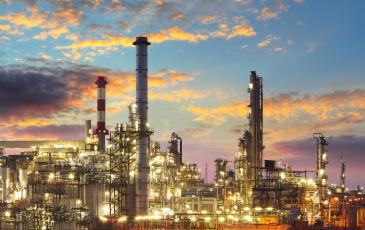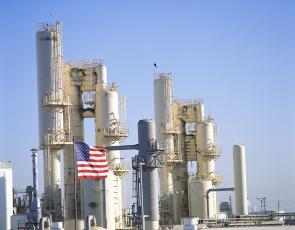This post originally appeared on LinkedIn
A 15-year rise in U.S. exports of refined products continued in 2019 with our nation exporting more than ever, underscoring the importance of these products to fueling a growing world. In the latter half of this decade, we’ve also seen U.S. petrochemical production capacity grow, and exports for petrochemicals and petrochemical feedstocks rise as well.
It’s difficult not to see these trends in the context of another: the number of people living in extreme poverty across the globe has dropped precipitously in recent decades, from 28 percent of the world population in 2000, to 16 percent in 2010, to an estimated 8.6 percent in 2018 — a milestone that means healthier lives and more opportunities for hundreds of millions of people.
U.S. fuel and petrochemical manufacturers have been crucial in this transformation, making affordable fuels that enable transportation, home heating and cooking, and petrochemical products that facilitate food, water and health-care systems, among countless other solutions integral to daily life and foundational to thriving, vibrant communities.
Now our society stands at the dawn of a new decade, grappling with questions about the best path forward for our country and for humanity, as the U.N. estimates the world population will grow by 2 billion people in the next 30 years. And while projections show that demand for fuel and petrochemical products is expected to increase for decades to come, there is a growing dialogue about what it means to operate sustainably, and how petroleum-derived fuels and chemicals fit into a culture that is concerned for our shared environment, mindful of our changing climate, and eager to take action to ensure a better world for the next generation.
Positioned at an intersection where precious natural resources are transformed into valuable, life-enhancing products, fuel and petrochemical manufacturers have unique perspectives, insights,and capabilities to inform solutions and policies. AFPM acknowledges that climate change is real and is committed to the development of sound policies that enable our members to supply the fuel and petrochemicals that growing global populations and economies need to thrive, and do so in an environmentally sustainable way.
This is why for the past three years, AFPM has led the effort to develop and advocate for a high-octane 95-RON fuel standard that would deliver significant efficiency improvements in new vehicles, yielding substantial reductions in carbon emissions across the vehicle fleet. When paired with automobiles optimized for such fuel, 95-RON can deliver a 3 – 4 percent efficiency gain at a lower well-to-wheels cost than other technologies — the carbon equivalent of more than 700,000 electric vehicles on the road each year. This 95-RON fuel could be sold using the nation’s existing fueling infrastructure and is compatible with vehicles on the road today. We’ve worked hand-in-hand with automakers to develop this proposal and continue to advocate for Congress to take it up.
Beyond advocating for 95-RON, AFPM is committed to continuously improving the efficiency and sustainability of our members’ operations and ensuring they can continue to offer fuels and petrochemicals that make engines and other products more efficient. As two industries served by some of the brightest minds and most creative problem-solvers of our time, we’re also pursuing research, innovation, and the application of new technologies and products.
Unfortunately, there are many false narratives about AFPM’s position on climate policies, and we are too often excluded from the dialogue around climate. Various proposals have been put forth by politicians and political hopefuls in recent months to demonstrate commitments to lowering emissions and addressing our changing climate — from electric vehicles mandates, to plastic bans, to calling for an end for fossil fuels in the next 10 years. These ideas completely overlook the irreplaceable role that liquid fuels and petrochemical products play in improving lives both here in the U.S. and around the world.
We must challenge our leaders to consider a more holistic picture of modern life and the products that enable it when developing the laws and rules that govern us. Policies addressing climate change must be balanced and measured to improve quality of life, ensuring the long-term economic, energy and environmental needs of humanity are met.
As we look ahead to the next year, decade and beyond, there is no question that U.S. fuel and petrochemical manufacturers and the products they produce will help humanity thrive. I am optimistic about our shared future and look forward to working with all stakeholders to tackle the world’s biggest challenges.


